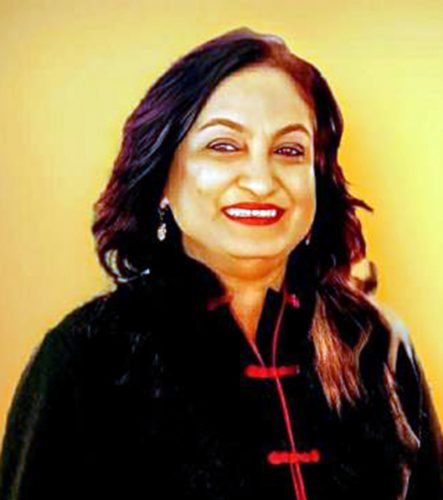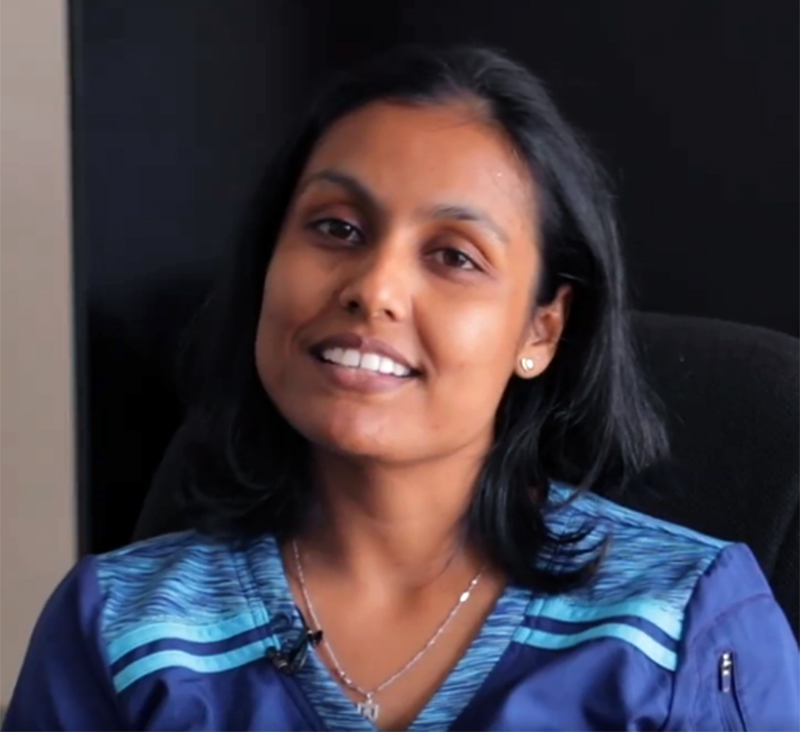Guyana has been struggling in the area of sexual and reproductive health although some barriers have been broken, according to Patricia Sheerattan-Bisnauth, Chief Executive Officer (CEO) of the Caribbean Family Planning Affiliation, who says the health risks that women face have tremendous impact on their families and society as a whole.
Speaking during a recent virtual panel discussion on “Sexual and Reproductive Health – Why is it Important to Gender Equality?” which was hosted by the Women and Gender Equality Commis-sion, Sheerattan-Bisnauth said Guyana’s maternity mortality rate is still very concerning as is access to family planning by all women but especially vulnerable women and girls. The vulnerable includes migrants and those in the LBGT community who are shut out of the public health care system.

She called for a comprehensive approach towards sexual education because of the high rate of adolescent pregnancy and risky sexual behaviours. The law that prevents adolescents from accessing sexual and reproductive health also needs to be addressed, she said.
Sheerattan-Bisnauth, the former head of the Guyana Responsible Parenthood Association (GRPA), also said men need access to information on sexual and reproductive health and they should feel comfortable accessing these services and to be part of the solution in a positive way.
Dr Umadai Rattan, who was attached to the Ministry of Health but is now in private practice at the Woodlands Hospital, said a lot of strides has been made but the country still has a far way to go and it has to do with sensitization and education as without that the population would not know how to access safe services that are available.
She said while abortion is legal in Guyana, there are still too many untrained persons who are providing the service and as a result it is not being provided safely.
Speaking on the issue of fertility, Rattan said the access to this service is very difficult for persons living in far flung areas. She also pointed out that Guyana’s culture blames women when a couple finds it difficult to have a child. Infertility is a big issue for couples and it is wrong for the woman alone to visit a clinic as it is not her problem but the couple’s problem, she observed.
“A lot of times the woman comes and ‘oh I am not getting pregnant’ and the mother brings her or the mother-in-law brings [her] and there is a lot of stigma attached to infertility. We could do our part by not asking somebody ‘When are you getting kids?’ Because really you don’t know what’s happening with a person,” Dr Rattan said.
She stressed the importance of both parties being screened and not just the woman, before adding that one-third of problem is the woman, one-third is the man and the other one-third is unknown. In her practice, she speaks to both parties and for her that is one way of addressing the gender equality barrier.
While the screening at the primary level for infertility is available, access to trained personnel is mainly centralized, thereby making it difficult for those who live in far flung areas to be referred.
And while screening for reproductive cancers are available again Dr Rattan pointed out that access in the far flung areas still remains an issue and needs to be improved.
Education for women should remain ongoing, she said, as women are still unaware of who should be screened, some of the risk factors for the cancers and what they should look for. Importantly, she pointed out that sexual and reproductive health education is not just crucial for women of reproductive age but the older population as well.
Asked about the availability of contraceptives Dr. Rattan said while they are widely available there are still women who are denied access to due to their location or the relevant personnel not being available at a health facility to facilitate a particular type of contraceptive.
However, she said the Ministry of Health has been collaborating with different organisations to do mobile clinics as a way to meet that need. Those clinics provide a wide range of services.
Meanwhile, noting the lack of reproductive health services available, especially for women in the mining areas and migrant women, attorney and human rights activist Sadie Amin said there are a lot of atrocities that are being perpetrated on women and children in the interior. She called for a governmental approach in going out to these areas, where she said women are basically sex slaves.
Amin believes that the time is right for there to be legislation to address the issue as it might not be seen as trafficking in person but she pointed out if a person is limited to where they stay and how they give their bodies, then they may no longer be a sex worker but someone whose freedom has been taken away.
Adoption
The panel discussion also heard concerns about the adoption of children, with Amin, who sat on the Adoption Board for a number of years, saying that the young age of those being put up for adoption “boggled” her mind.
Amin said she along with others had questioned how it is possible for a four-month-old baby, for example, to be up for adoption and for her it is a very “touchy area” as they don’t want to see a situation where people, especially foreigners, are baby shopping and paying for someone to have a child. Instead, such transactions should be done under the Surrogacy Act, she said.
Amin said Guyana does have a very progressive Surrogacy Act but she was unaware of if it is being utilised.
Amin also voiced concern about children being adopted by foreign nationals, such as Americans and being left in a legal wasteland if they are refused a visa as the child has no legal rights to their natural parents and their adoptive parents have returned to their home country.
“These children are left in an abyss; they have no rights whatsoever. So that is something the courts need to look at…,” she said, before adding that there are a number of children who are left in that no man’s zone or no parent zone. They are now at 10 or 12 years old and are living with aunts or grandparents and do not have the support of their natural parents or their adoptive parents.
The commission’s monthly panel discussion was moderated by member Renata Chuck-A-Sang.





